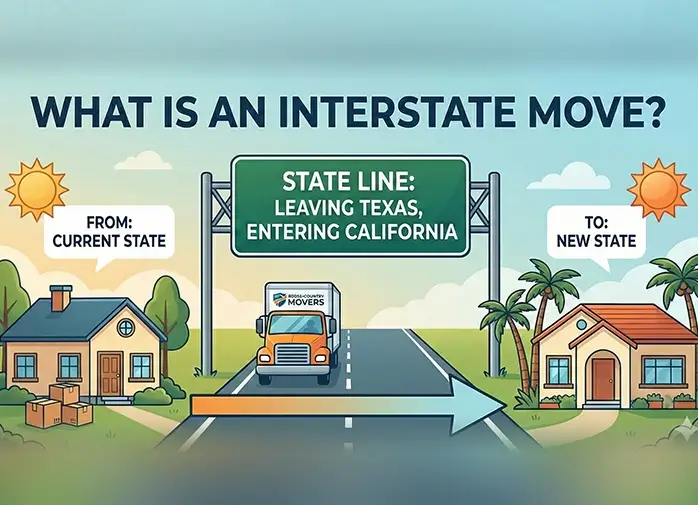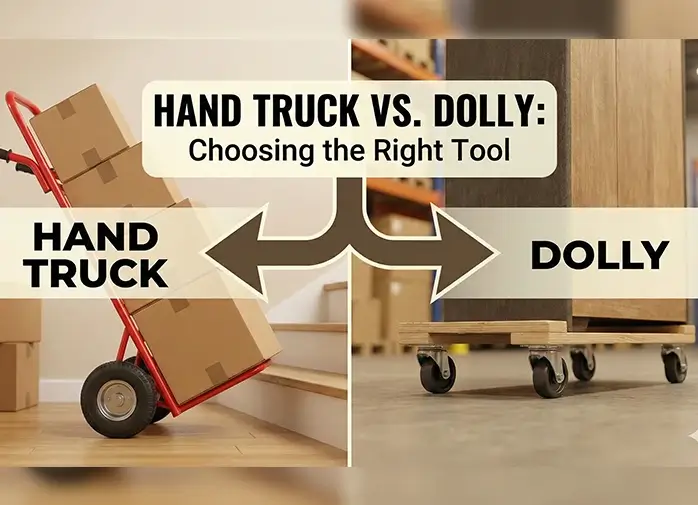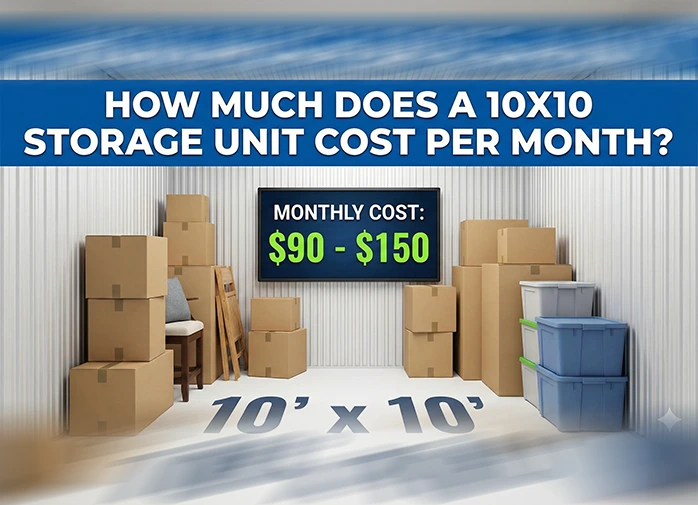How Much Does It Cost to Move a 2,000 Sq. Ft. House?

Moving a 2,000-square-foot house is no small feat. With multiple bedrooms, bathrooms, a kitchen full of appliances, furniture, and years of belongings, the process requires careful planning — and, of course, a realistic budget. Whether you’re moving locally or across the country, knowing how much does it costs to move a 2,000 sq. ft. house helps you prepare financially and avoid unpleasant surprises.
In this guide, we’ll break down average moving costs, what factors influence them, DIY vs. professional moving costs, and tips to save money — so you can make your next big move with confidence.
Understanding the Basics of Moving Costs
Before we get into specific numbers, it’s important to understand what moving costs typically include. When movers calculate the cost of moving a 2,000 sq. ft. home, they consider several main components:
- Distance of the move (local vs. long-distance)
- Volume or weight of your belongings
- Labor costs for packing, loading, and unloading
- Packing supplies such as boxes, tape, and wrapping
- Additional services (e.g., furniture disassembly, storage, or specialty items)
- Moving insurance and fuel surcharges
Each of these factors contributes to your final price — and depending on your location and the time of year, the price can vary significantly.
How Much Does It Cost to Move a 2,000 Sq. Ft. House? (Average Cost)
Let’s look at some ballpark figures to help you estimate your moving budget.
Local Move (Under 100 Miles)
For moves within the same city or nearby areas, movers usually charge by the hour.
- Average cost range: $1,500 – $4,500
- Hourly rate: $100 – $250 per hour (for 3–5 movers and a truck)
- Time estimate: 6–10 hours depending on accessibility and home layout
Example: If you live in a 2,000 sq. ft. 3-bedroom home, moving across Austin might cost around $2,800, including packing, truck, and labor.
Long-Distance Move (Over 100 Miles)
For cross-country or interstate moves, costs are typically based on weight and distance.
- Average cost range: $5,000 – $12,000
- Per-pound rate: $0.50 – $0.80 per mile
- Distance: 500–2,500+ miles
Example: Moving a 2,000 sq. ft. home from Austin, TX to Seattle, WA (around 2,000 miles) might cost about $9,000 – $11,000 depending on weight and services.
Cost Breakdown by Service Type
Different types of moving services come with different price tags. Here’s a breakdown of the most common options:
a. Full-Service Movers
These professionals handle everything — packing, loading, transportation, unloading, and even unpacking if you want.
- Cost range: $7,000 – $12,000 (for long-distance)
- Best for: Busy families, large homes, or anyone wanting a stress-free move.
b. Self-Pack, Professional Transport
You pack everything yourself, and movers only handle transportation.
- Cost range: $4,000 – $8,000
- Best for: Budget-conscious moves where you can manage packing time.
c. Moving Container Services
Companies like PODS or U-Pack drop off a container, you load it, and they transport it.
- Cost range: $3,000 – $7,000
- Best for: Flexible schedules and partial DIY movers.
d. DIY Move (Truck Rental)
Renting a moving truck from U-Haul, Penske, or Budget can drastically cut costs — but expect to do the heavy lifting.
- Cost range: $2,000 – $4,500 (including gas, tolls, and supplies)
- Best for: Short-distance moves or small households.
Key Factors That Influence the Cost
Several variables can increase or decrease the total cost of moving a 2,000 sq. ft. home.
a. Distance
The farther you move, the higher the fuel, labor, and time costs. Long-distance moves can double or triple your budget.
b. Weight and Volume
The more items you have, the heavier and bulkier the load. Downsizing before moving can cut costs significantly.
c. Packing Services
Hiring professionals to pack your home can add $500 – $1,500 depending on how much needs to be packed.
d. Specialty Items
If you have pianos, antiques, gym equipment, or artwork, expect extra fees ranging from $150 to $1,000 per item.
e. Accessibility
Stairs, narrow hallways, elevators, or long carry distances can increase labor charges by 10–20%.
f. Time of Year
Summer is the peak moving season — prices are typically 20–30% higher compared to winter or early spring.
g. Insurance and Liability Coverage
Full-value protection costs extra but is worth it for long-distance or high-value moves.
Real-World Moving Examples
| Move Type | Distance | Average Cost | Details |
|
Local move in Dallas |
30 miles |
$2,000 – $3,500 |
Includes truck, labor, and basic packing |
|
Interstate move (Austin to Denver) |
900 miles |
$5,500 – $8,000 |
Based on 8,000 lbs household items |
|
Cross-country (New York to Los Angeles) |
2,800 miles |
$10,000 – $12,000 |
Full-service with packing and unpacking |
|
DIY Move |
200 miles |
$2,000 – $3,000 |
Truck rental + fuel + packing materials |
Hidden or Overlooked Moving Expenses
Moving involves many “extra” costs that people often forget about. Be sure to account for:
- Packing supplies: $200 – $500
- Moving insurance: $100 – $500
- Storage (if needed): $150 – $400/month
- Utility setup fees: $50 – $300
- Cleaning services: $150 – $400
- Tips for movers: 10–20% of total moving labor cost
Even minor add-ons like wardrobe boxes, floor protection, or parking permits can make a difference.
How to Save Money When Moving a 2,000 Sq. Ft. House?
Moving doesn’t have to break the bank. Try these strategies to cut costs without cutting corners:
1. Declutter Before You Move
Sell, donate, or recycle items you don’t use. The fewer things you move, the lower the cost.
2. Compare Multiple Moving Quotes
Get at least 3–5 quotes from reputable movers to ensure you’re getting the best deal.
3. Move During Off-Peak Season
If possible, plan your move between October and April to take advantage of lower rates.
4. Do Some Packing Yourself
Even partial DIY packing (like clothing or books) can save hundreds.
5. Use Free or Discounted Boxes
Check local stores, Facebook Marketplace, or recycling centers for free boxes.
6. Claim Moving Expenses
If your move is job-related, check if your employer offers reimbursement or if certain costs are tax-deductible.
Mistakes to Avoid When Estimating Moving Costs
To prevent budget surprises, watch out for these common pitfalls:
- Ignoring extra fees: Always ask movers for a full cost breakdown.
- Underestimating packing time: A 2,000 sq. ft. home takes more time to pack than expected.
- Skipping insurance: Damage can happen even with professional movers.
- Not reading contracts carefully: Watch for hidden clauses or cancellation fees.
- Waiting too long to book: Prices go up closer to your move date.
When to Hire Professional Movers?
Hiring professionals makes sense if:
- You have limited time or a tight moving schedule
- Your move is interstate or cross-country
- You have fragile, heavy, or expensive items
- You want insurance protection and peace of mind
Even though professionals cost more, the reduced stress and risk often make it worthwhile — especially for a large 2,000 sq. ft. move.
Final Tips for a Smooth Move
Here are a few final tips to make your move as efficient and stress-free as possible:
- Start planning at least 6–8 weeks in advance.
- Create a moving checklist and timeline.
- Label boxes clearly by room and contents.
- Take photos of electronics before disconnecting.
- Keep a “moving day essentials box” with toiletries, chargers, and important documents.
- Confirm all details (address, date, contact info) with your moving company 48 hours before the move.
Conclusion
So, how much does it cost to move a 2,000 sq. ft. house?
Expect anywhere from $1,500 for a local move to $12,000 or more for a cross-country relocation, depending on your location, services, and season.
While moving can be expensive, careful planning and smart choices can help you save thousands. Whether you choose a full-service mover or a semi-DIY approach, understanding the breakdown of costs ensures that your move is smooth, organized, and within budget.
If you’re ready to plan your next move, Van Lines Move can help you compare licensed movers, get accurate quotes, and move your 2,000 sq. ft. home safely — anywhere in the U.S.
FAQ
Q1. What’s the cheapest way to move a house?
The cheapest way to move a house is by doing part of the work yourself—packing, loading small items, and renting a truck. However, hiring a professional mover like VanLinesMove can save time and prevent damage in the long run.
Q2. How to calculate moving costs?
You can calculate moving costs based on distance, shipment weight, and services used. Use VanLinesMove’s free moving cost calculator to get an accurate estimate tailored to your home size and location.
Q3. How much to pay for moving a house?
Moving a 2,000 sq. ft. house typically costs between $3,000 and $8,000 for long-distance moves, and $1,000 to $3,000 for local relocations, depending on distance, packing, and additional services.
Q4. What is the cheapest way to move a house?
The most affordable method is booking movers during the off-season, decluttering before moving, and comparing quotes from licensed movers like VanLinesMove to get the best deal.
Categories
- Long Distance Moving154
- Local Moving120
- Commercial Moving40
- Residential Moving34
- Last – Minute Moving25
- Moving Tips & Lifestyle10
- Furniture Moving9
- Moving Tips & How-To Guides8
- Moving services7
- Moving Cost5
- Moving Cost Calculator5
- Moving Costs & Budgeting5
- moving tips4
- Moving companies4
- state to state movers4
- Piano Moving3
- Car Transportation3
- Truck Rental3
- Local Move3
- best moving rates3
- cheap moving companies3
- affordable moving companies3
- full-service movers3
- Moving3
- Moving Tips3
- Moving Cost Guides3
- Moving Tips & Planning3
- Junk Removal2
- Moving Container2
- Senior Moving2
- Senior Relocation Moving Companies2
- Moving Tools2
- Moving Estimates2
- interstate moving2
- College Moving2
- Dorm Moving2
- Tips for moving2
- cross-country move2
- International moving2
- Household moving2
- Long-Distance Moving2
- Relocation Guide2
- Moving Tips & State Guides2
- Heavy Equipment1
- Senior Moving Services1
- office moving1
- office relocation1
- employee relocation1
- Car Transport1
- Vehicle Shipping1
- Car Shipping Services1
- Artificial Intelligence1
- Office Moving Services1
- Commercial Moving Companies1
- Corporate Moving Services1
- Corporate Movers1
- full-service moving companies1
- sustainable moving companies1
- green movers1
- Moving in US1
- Best places to move in 20251
- 2025 moving1
- Full-Service Moving Companies1
- College moving services1
- Moving to College1
- Moving Season1
- Spring Moving1
- donate1
- sell1
- Movers in California1
- Movers in Studio City1
- Moving to California1
- Laws about Moving into California1
- Moving Laws1
- House moving1
- packing1
- cheap moving ways1
- Moving guide1
- moving across countries1
- international relocation program1
- move out cleaning1
- right packing supplies1
- pack while moving1
- Apartment moving1
- PODS1
- moving out1
- state to state move1
- California movers1
- Truck Rental1
- US Territory Relocation1
- International Moving1
- Shipping & Moving Tips1
- Moving Budget Guide1
- Relocation Guides & Incentives1
- Moving Tools & Equipment Guides1
- Moving Services & Options1
- Moving Tips & How-To Guides1
- Moving Day & Settling In1
- Mobile Home Moving1
- Moving Guide & Tips1
- Moving Tips & State Comparisons1
- Moving Tips & City Guides1
- Moving Tips & Cost Guides1
- Long-Distance Moving Tips1
- Moving Tips & Financial Planning1
- Moving Tips & Home Preparation1
- Vehicle Shipping & Auto Transport1
- Marketing & Lead Generation1
- International Moving Guides1
- Moving Costs1
- San Francisco Moving Guide1
- NYC Moving1
- Local Movers1
- Budget Moving1
- Student Moving1
- Affordable Moving1
- Specialty Moving Guides1
- Local & Long-Distance Moving1
- Boston Moving Guide1
- Europe Relocation Guide1
- Moving Costs & Specialty Moving1
- Cost of Living1
- Relocation1
- International Moving1
- Moving Guides1
- Lifestyle & Relocation1
- State Guides1
- Home Buying Guide1
- Moving Timeline1
- Real Estate Tips1
- Appliance Moving1
- Packing & Preparation1
- Interstate Relocation1
- City-to-City Moving Guide1
- Technology for Movers1
- Moving Reviews1
- Moving Costs & Storage1
- Moving Tips & Equipment Guides1
- Moving Guides & Cost Insights1
Archives
Recent posts
-

What Is an Interstate Move? Everything You Need to Know Before Moving Across State Lines
February 2026 -

North American Van Lines Reviews: Is It Worth the Cost in 2026?
February 2026 -

Hand Truck vs Dolly: Which One Is Better for Moving and Heavy Lifting?
January 2026 -

How Much Does a 10×10 Storage Unit Cost Per Month? (2026 Guide)
January 2026

 Local Movers
Local Movers Last-Minute Movers
Last-Minute Movers Junk Removal
Junk Removal Long Distance Movers
Long Distance Movers Piano Movers
Piano Movers Heavy Equipment
Heavy Equipment Commercial Movers
Commercial Movers Moving Container
Moving Container Car Transportation
Car Transportation Furniture Movers
Furniture Movers Truck Rental
Truck Rental Moving Cost Calculator
Moving Cost Calculator Moving Planner
Moving Planner Packing Calculator
Packing Calculator Moving Checklist
Moving Checklist Moving Insurance
Moving Insurance FAQ
FAQ Contact Us
Contact Us Moving Loan
Moving Loan About Us
About Us







